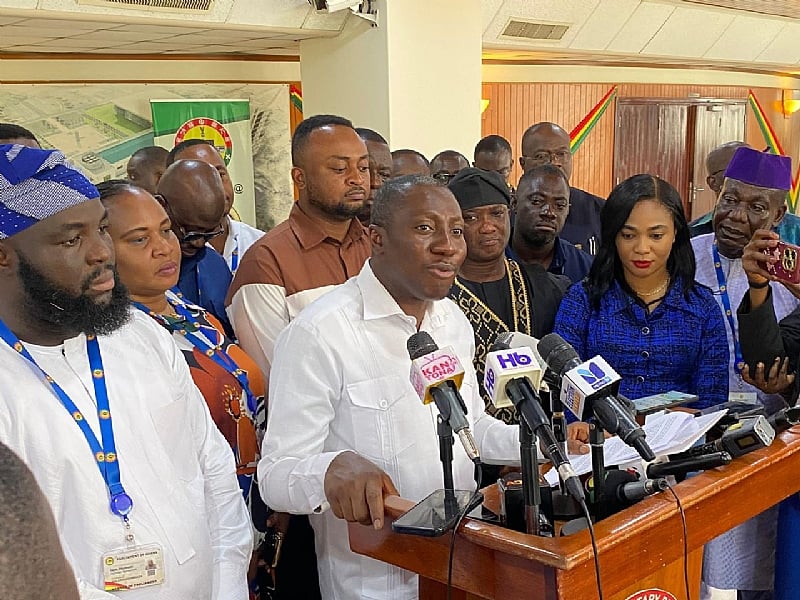The political landscape in Ghana is ablaze with controversy following the suspension of Chief Justice Gertrude Esaaba Torkornoo by President John Dramani Mahama. This action has ignited a firestorm of protest, culminating in a planned nationwide demonstration on May 5, 2025, spearheaded by a coalition of opposition parties. The Minority Caucus in Parliament has thrown its full support behind the demonstration, characterizing it not merely as a political maneuver, but as a crucial defense of Ghana’s constitutional integrity. They see the CJ’s suspension as a calculated strategy to undermine the judiciary’s independence, potentially paving the way for Mahama to pursue an unprecedented third presidential term, a move they view as a grave threat to democratic governance.
The Minority Caucus’s stance reflects a deep-seated concern about the erosion of democratic principles and the rule of law under the current administration. Their statement, issued on April 30, 2025, accuses President Mahama of orchestrating the CJ’s suspension to manipulate Article 66(2) of the Constitution, which addresses presidential term limits. They argue that this action constitutes a gross abuse of power and a betrayal of the trust placed in the executive by the Ghanaian people. The Caucus’s unwavering support for the demonstration underscores the seriousness of the situation and their commitment to safeguarding the country’s democratic foundations.
The suspension of Chief Justice Torkornoo stemmed from petitions and consultations with the Council of State, which reportedly established a prima facie case against her. However, the opposition parties vehemently reject this justification, denouncing the move as a blatant assault on judicial independence. They see a disturbing pattern of political interference in the judiciary re-emerging under the ruling National Democratic Congress (NDC), reminiscent of past incidents that raised concerns about the government’s respect for the separation of powers. The opposition views this latest action as a dangerous precedent that could have long-lasting repercussions for Ghana’s democratic institutions.
The planned May 5 demonstration is not merely a protest against a single act of perceived executive overreach; it represents a broader struggle to preserve the integrity of Ghana’s democratic system. The opposition parties view the suspension of the Chief Justice as a pivotal moment that demands a strong and unified response from all citizens who cherish democratic values. The demonstration is a call to action, urging Ghanaians to stand up against what they perceive as an authoritarian drift and defend the principles enshrined in their Constitution. The opposition’s message is clear: silence in the face of such actions would be complicity in the erosion of democratic norms.
The coalition of opposition parties, including the New Patriotic Party (NPP), Liberal Party of Ghana (LPG), National Democratic Party (NDP), and People’s National Party (PNP), have united in their condemnation of the CJ’s suspension. Their joint statement, issued on April 25, 2025, underscores their shared concern about the implications of this action for the future of Ghanaian democracy. They believe that President Mahama’s move sets a dangerous precedent, signaling a willingness to manipulate institutions for political gain. This united front against the government’s actions demonstrates a resolve to resist what they perceive as an attack on the very foundations of their democratic system.
The upcoming demonstration is shaping up to be a significant test of the strength and resilience of Ghana’s democratic institutions. The opposition parties, backed by the Minority Caucus in Parliament, are framing the protest as a crucial battle to uphold the rule of law and prevent the country from sliding towards authoritarianism. The outcome of this standoff will undoubtedly have profound consequences for Ghana’s political landscape and its future trajectory. The demonstration is not just a protest; it’s a declaration of the citizens’ commitment to safeguarding their democratic rights and holding their leaders accountable for their actions.














